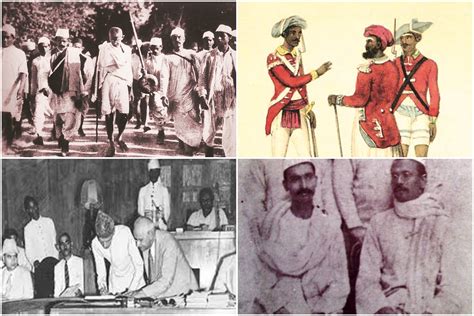Independence, in its most fundamental sense, is the state of being free from the control, influence, or guidance of others. It is about autonomy, self-governance, and the ability to make decisions that are not dictated by external forces. Independence is a concept that resonates deeply within the human spirit, often symbolizing freedom, empowerment, and the pursuit of one’s own path in life. However, the notion of independence is multifaceted and can manifest in various aspects of life, from personal and financial to political and emotional independence.
Personal Independence
Personal independence refers to an individual’s ability to live their life as they see fit, making their own choices and decisions without undue influence from others. This form of independence is closely tied to personal freedom and autonomy, allowing individuals to pursue their passions, develop their identities, and cultivate meaningful relationships based on mutual respect and trust. Achieving personal independence involves developing self-reliance, emotional intelligence, and a strong sense of self-awareness, which enables individuals to navigate life’s challenges with confidence and resilience.
Financial Independence
Financial independence is the state of having sufficient wealth to live without needing to work for money. This concept is often associated with the ability to cover one’s living expenses through sustainable passive income sources, thereby providing the freedom to pursue activities and passions without the burden of a traditional 9-to-5 job. Achieving financial independence requires careful financial planning, discipline, and often a long-term strategy that involves saving, investing, and managing one’s resources wisely. The ultimate goal of financial independence is to break the cycle of dependence on a salary, allowing for a more flexible and fulfilling lifestyle.
Emotional Independence
Emotional independence is about being free from the need for validation or emotional support from others to feel complete or happy. It involves recognizing one’s own emotional needs and being capable of meeting them without relying excessively on external sources. Emotional independence is not about isolating oneself from others but about developing a strong sense of self-worth, emotional resilience, and the ability to form healthy, balanced relationships. This form of independence allows individuals to navigate life’s challenges with greater stability, maintain their emotional well-being, and cultivate meaningful connections with others based on mutual respect and understanding.
Political Independence
Political independence refers to a nation’s or region’s freedom from the political control of other nations or entities. It is the ability of a political entity to govern itself, make its own laws, and conduct its foreign policy without interference. Political independence is often a result of national movements, historical events, or diplomatic efforts aimed at achieving sovereignty. It symbolizes a nation’s right to self-determination, allowing it to chart its own course in global affairs, manage its internal affairs without external dictate, and engage in international relations as an equal entity among other nations.
The Pursuit of Independence
The pursuit of independence, whether personal, financial, emotional, or political, is a fundamental human aspiration. It represents a quest for autonomy, freedom, and the ability to forge one’s own path. This pursuit can be challenging, requiring effort, perseverance, and a willingness to embrace change and uncertainty. However, the rewards of independence are manifold, offering individuals and nations the opportunity to realize their full potential, cultivate their unique identities, and contribute to the world in meaningful and innovative ways.
Achieving Independence
Achieving independence involves a process of self-discovery, growth, and the development of skills and knowledge that enhance autonomy and self-reliance. For individuals, this might involve setting clear goals, developing financial literacy, building emotional intelligence, and fostering a mindset that is open to learning and change. For nations, achieving political independence often requires a collective effort towards self-governance, economic development, and the establishment of robust political institutions that ensure stability and continuity.
Challenges to Independence
While the concept of independence is universally appealing, its realization is often fraught with challenges. These can range from internal factors such as fear, self-doubt, and complacency, to external barriers like systemic inequalities, political oppression, and economic constraints. Overcoming these challenges requires resilience, strategic planning, and a deep understanding of the complex interplay between individual and collective aspirations, societal norms, and global dynamics.
Conclusion
Independence, in all its forms, is a powerful and transformative concept that underlines human aspirations for freedom, autonomy, and self-realization. Whether pursued at a personal, financial, emotional, or political level, the quest for independence is a journey of growth, discovery, and empowerment. It is a testament to the human spirit’s capacity for resilience, innovation, and the relentless pursuit of a better future. As such, independence remains an enduring and universal goal, inspiring generations to strive for a life of purpose, fulfillment, and contribution to the global community.
What are the different types of independence?
+Independence can be categorized into personal, financial, emotional, and political independence. Each type represents a different aspect of autonomy and freedom, whether in personal life, financial security, emotional well-being, or political sovereignty.
How can one achieve personal independence?
+Achieving personal independence involves developing self-awareness, emotional intelligence, and the ability to make decisions that align with one's values and goals. It also requires cultivating skills and knowledge that enhance autonomy and self-reliance, such as effective communication, problem-solving, and time management.
What is the significance of financial independence?
+Financial independence signifies the freedom to live life on one's own terms, without the necessity of a traditional job for financial support. It allows for greater flexibility, the pursuit of passions, and the ability to make choices that are not driven by financial necessity but by personal fulfillment and contribution.
Can emotional independence be harmful if taken to an extreme?
+While emotional independence is essential for personal growth and well-being, taking it to an extreme can lead to isolation and an inability to form meaningful connections with others. Emotional independence should be balanced with the ability to form healthy, interdependent relationships that nurture both personal growth and mutual support.
Independence, whether personal, financial, emotional, or political, is a journey rather than a destination. It requires continuous learning, adaptation, and a commitment to personal growth and development. By understanding and pursuing independence in its various forms, individuals and nations can unlock their full potential, foster resilience, and contribute to creating a more diverse, equitable, and fulfilling world for all.
Achieving Independence: A Step-by-Step Guide

- Set Clear Goals: Define what independence means to you and set specific, achievable goals.
- Develop a Plan: Create a strategic plan that outlines the steps you need to take to achieve your goals.
- Cultivate Skills and Knowledge: Acquire the skills and knowledge necessary to enhance your autonomy and self-reliance.
- Build Resilience: Develop emotional intelligence and resilience to navigate challenges and setbacks.
- Seek Support: Surround yourself with supportive individuals who encourage and support your pursuit of independence.



